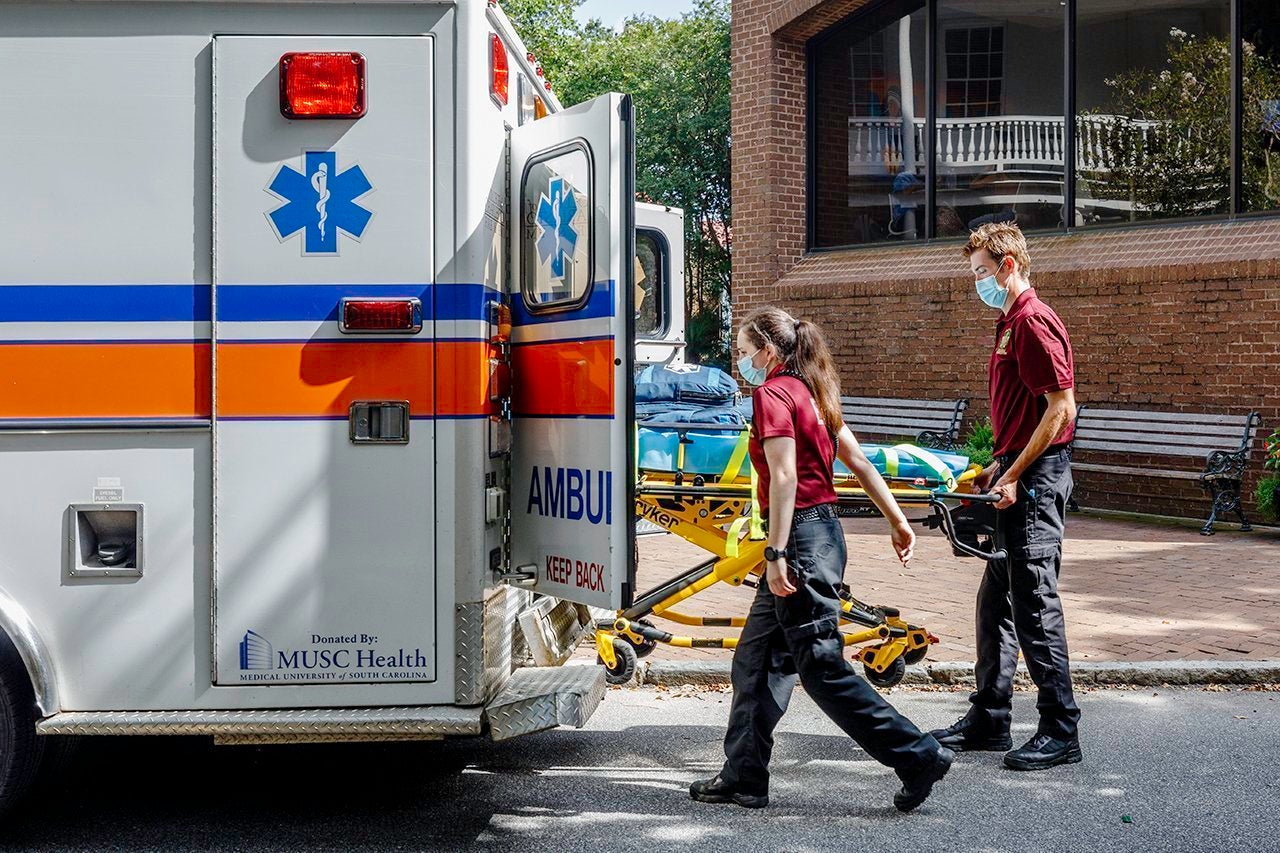Day in and day out, many people pass by the College of Charleston ambulance tucked between the St. Philip Street Parking Garage and the BellSouth Building without a glance – until its lights and siren signal an emergency. Little does the public realize, CofC students, who serve as emergency response volunteers, man the ambulance.
Since 1995, the College has had its own emergency medical technicians (EMTs) providing medical care and transportation free of charge to students, faculty and staff as well as the surrounding community. The College’s Emergency Medical Services (EMS) team is in service throughout the school year from 5 p.m. until 7 a.m.
To join this elite team, volunteers must get certified as EMTs, which means they have to complete a 16-week EMT Basic credited course to learn about anatomy, physiology, EMS operations and patient assessment and treatment. The group is also licensed by the South Carolina Department of Health and Environmental Control (DHEC) as a Basic Life Support (BLS) transport agency and has an average response time of three minutes.
“We respond to all calls on CofC’s campus and calls in the surrounding area when requested by Charleston County,” says senior biology major Megan Golbus, the student EMS director. “Students who choose to get their clinical hours through CofC EMS get an unprecedented amount of autonomy and are able to develop quick decision-making skills.”
The program is also helpful for students like Jack Golder who are interested in the medical field.
“I originally joined the EMS program for the opportunities it would give me as a pre-med student,” he says. “It provided both clinical and volunteer hours/experiences as an undergrad student, and that is exactly what medical schools look for on
your application.”
Golbus and Golder, both of whom are in the Honors College, want to go into the medical field and stay involved in the EMS scene after their time at CofC. Although Golbus plans to attend medical school to become a pre-hospital emergency physician, her experience with CofC EMS has motivated her to take a gap year first to get her EMT paramedic certification and go to paramedic school.
Golder, who plans to go straight to medical school after graduation to become a pediatric emergency physician, agrees that being on the College of Charleston EMS team has changed the way he’ll approach his future career. Especially informative has been the experience he’s gotten when the team is providing backup for Charleston County EMS.
“We go beyond the campus and into the real Charleston that most students never get to see. We meet lifelong residents, transplants and everything in between,” he says, noting that it’s opened his eyes to the world of real-life EMS providers. “It shows us that our job isn’t just the medicine – sometimes it’s about showing compassion to those who just need someone to talk to.”




